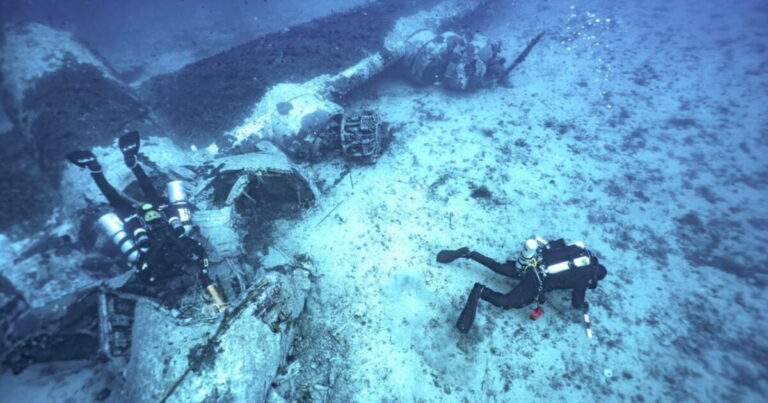The Mediterranean Sea, a body of water steeped in history and brimming with maritime tales, has another story to tell—a pressing one, with sea levels rising faster than previously anticipated. Researchers now believe that the rise in sea levels could be up to three times worse than earlier forecasts, putting countless coastal communities at significant risk. But the real question is: why is this happening, and what can we do about it?
A Mediterranean Treasure Trove of Lost History
In a poignant reminder of how the Mediterranean has been a silent witness to history, the sea recently gave up the remains of a U.S. airman who had been lost for 80 years. The body of Sergeant Irving R. Newman, who perished in 1943 while piloting a bomber over enemy lines during World War II, was discovered at the bottom of the sea near Malta. His plane, after suffering engine failure, had crashed into the waters, taking his life while sparing the lives of the nine other crew members.
Marine archaeologists from the University of Malta, with support from the U.S. government, had embarked on this remarkable mission after an initial sighting of the wreckage in 2015. By 2018, the divers had located the near-intact plane nearly 200 feet below the surface, offering a glimpse into the past, literally and metaphorically. The body, which had remained hidden for decades, was painstakingly recovered, with DNA tests confirming the identity of the long-missing pilot. It was a bittersweet moment for his surviving family and for the world that has come to know this story, thanks to dedicated efforts in marine archaeology.
The Mediterranean, it seems, never forgets—whether it’s soldiers lost in the depths or the rising tides that threaten to swallow the shores we cherish. Just as a plane that had been forgotten for decades was rediscovered, so too are we forced to reckon with the rising tides that threaten to alter our coastal landscapes forever.
Understanding the Science Behind Rising Sea Levels
So, why exactly are sea levels around the Mediterranean rising faster than expected? Climate scientists have long warned of the devastating effects of global warming, with melting polar ice caps and thermal expansion of seawater as major contributors. But a combination of regional factors, including changes in atmospheric pressure patterns and ocean currents, are accelerating this process in the Mediterranean.
In fact, recent studies have found that the Mediterranean is warming faster than other oceans, with projections suggesting that by the end of the century, the sea could rise by over one meter in some areas. This isn’t just an environmental issue; it’s a deeply human one. Coastal cities such as Venice, Barcelona, and Alexandria, some of the world’s most culturally rich and historically significant locations, face an uncertain future. Experts warn that without significant intervention, these cities could soon be dealing with the consequences of severe flooding and shoreline erosion.
What Can We Do?
While the scale of the challenge is daunting, there are actions we can take to mitigate the damage. One such measure is the promotion of sustainable practices in urban development, ensuring that new buildings are designed with resilience in mind. Additionally, enhancing the natural defenses of coastal regions through the restoration of wetlands and mangrove forests can help absorb some of the rising waters.
As the Mediterranean continues to face these new threats, the lessons of history remind us of the delicate balance we must strike. Whether it’s through the recovery of long-lost soldiers or the preservation of our beloved cities, we are at a pivotal moment in both understanding and preserving the Mediterranean’s future. The rise in sea levels is not just a matter for scientists to solve; it’s a challenge that we all must face together.
The discovery of Sergeant Newman’s remains might seem like an isolated tale from a distant past, but it serves as a potent symbol for the world we are now trying to protect. Our seas are rising, and the Mediterranean, a once tranquil hub of civilizations, is no exception. As we move forward, let’s make sure we are doing everything we can to protect this invaluable part of our global heritage.






